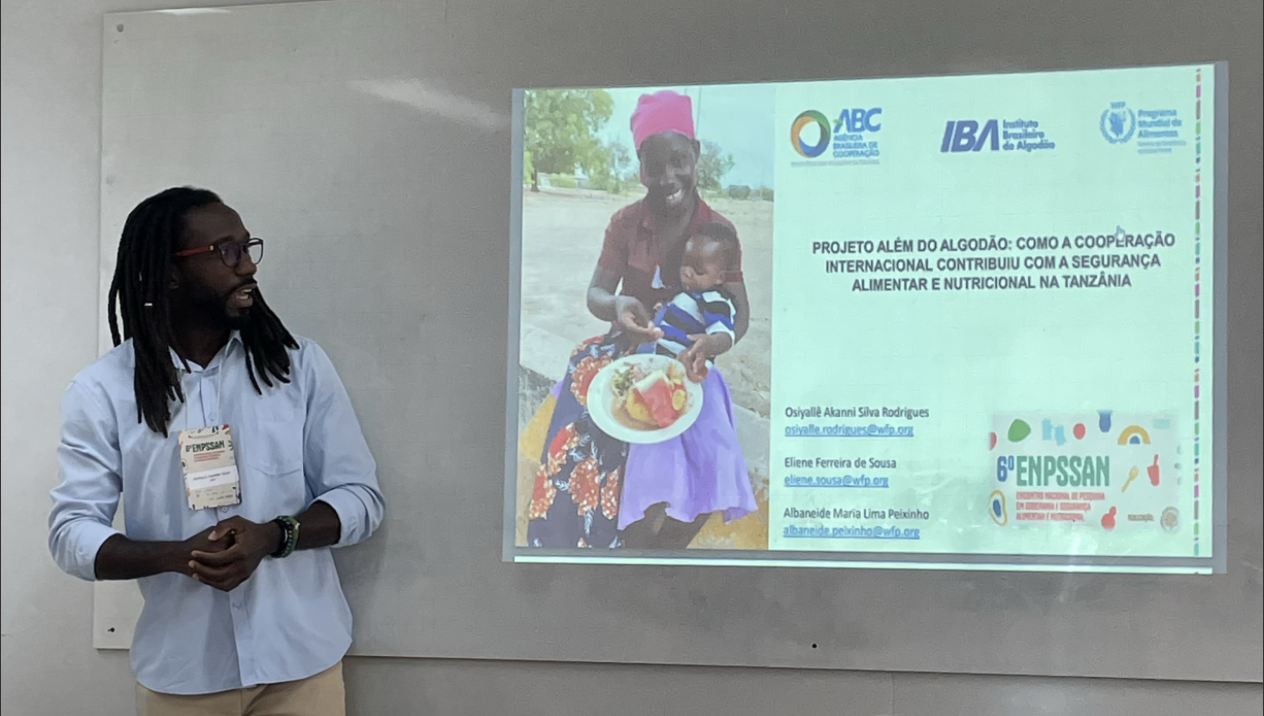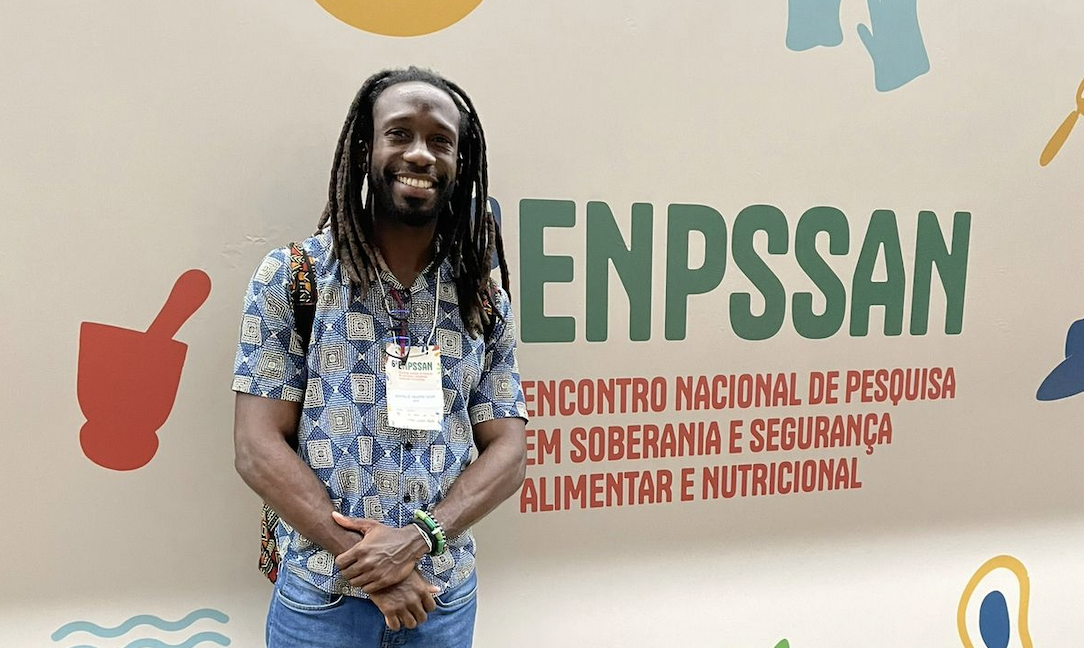
The results of the Beyond Cotton Project in Tanzania were presented on 12 September during a workshop held as part of the 6th National Research Meeting on Food and Nutrition Sovereignty and Security (ENPSSAN) at the State University of Rio de Janeiro (UERJ).
A joint initiative of the Centre of Excellence against Hunger of WFP in Brazil and the Brazilian Cooperation Agency (ABC), with the support of the Brazilian Cotton Institute, the project aims to support small cotton producers and public institutions in African countries in linking cotton by-products and intercropped crops such as maize, sorghum and beans to secure markets, including school feeding programmes.
Concluded in Tanzania in 2023, the project still has several positive impacts on its beneficiaries in the areas of agriculture and nutrition, which were presented at the event by the nutrition technical assistant at the Centre of Excellence against Hunger of WFP in Brazil, Osiyallê Rodrigues, in the context of the thematic axis ‘Food production and processing for healthy food systems’.
According to him, the project’s Food and Nutrition Education activities were important for improving the quality of the beneficiaries’ meals. “Cooking workshops were held with local foods to enrich the communities’ diets, because many of them had vegetables and fruit that they didn’t consume,” he said.
He cited as an example one of the project’s activities, which included the participation of professors from the Federal University of Campina Grande (PB), in which a recipe was proposed for vinaigrette with watermelon rind, associated with other traditional and common foods in the daily life of the Tanzanian population.
The project is an example of how international co-operation contributes to food and nutrition security in a broad way. An example of this was an activity on the transfer of technology for the construction of three cisterns, which was so successful that the local communities replicated it in the installation of another 30 new cisterns.

The nutritionist also emphasized that the collective work between the Tanzanian and Brazilian governments, the university, extension technicians and the school community was fundamental for the activities to be carried out well. “Putting economic, social and environmental policies into practice collectively is fundamental to mitigating nutritional problems among the local population, especially among the most affected segments, such as children and women,” he said.
The Beyond Cotton Project is still running in Mozambique and Benin, with various activities focusing on agriculture and nutrition for cotton farmers and their families.




